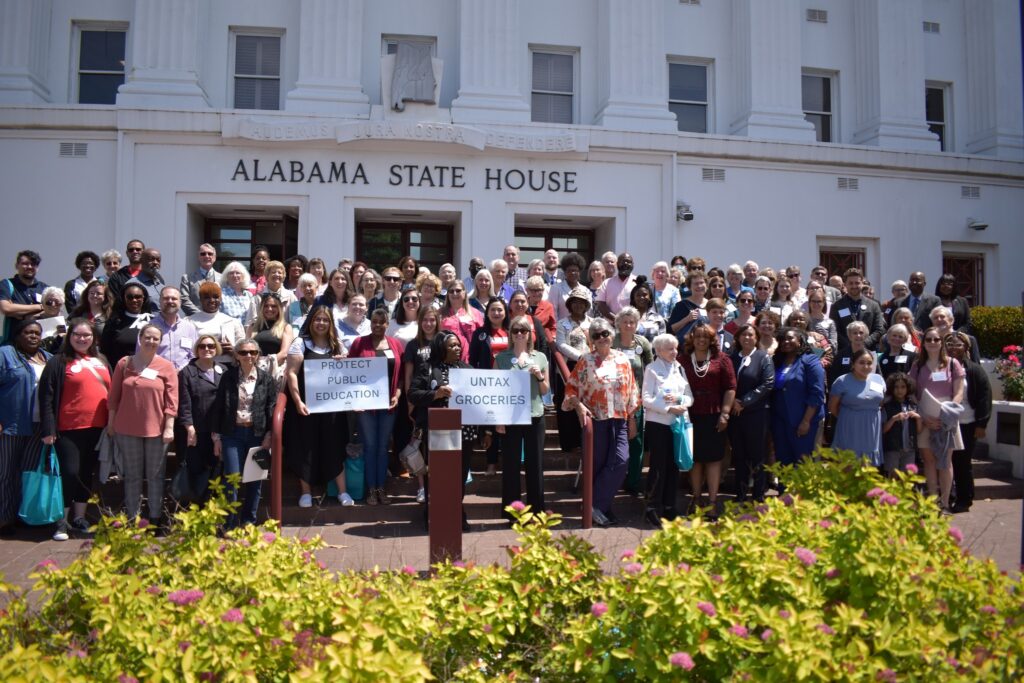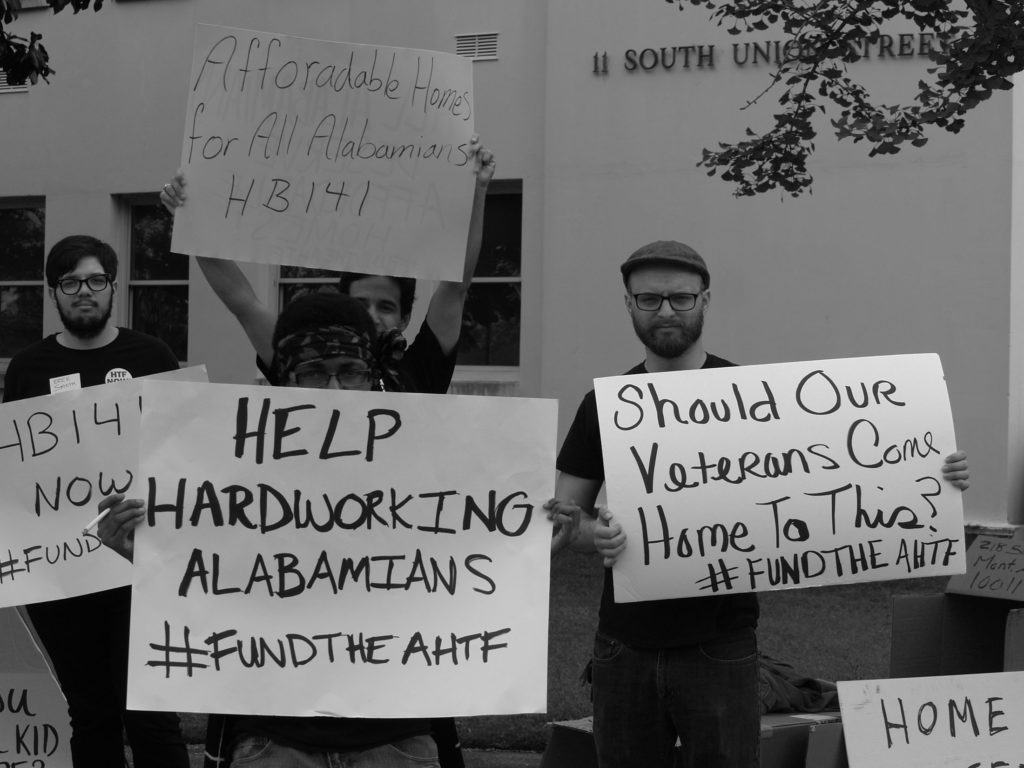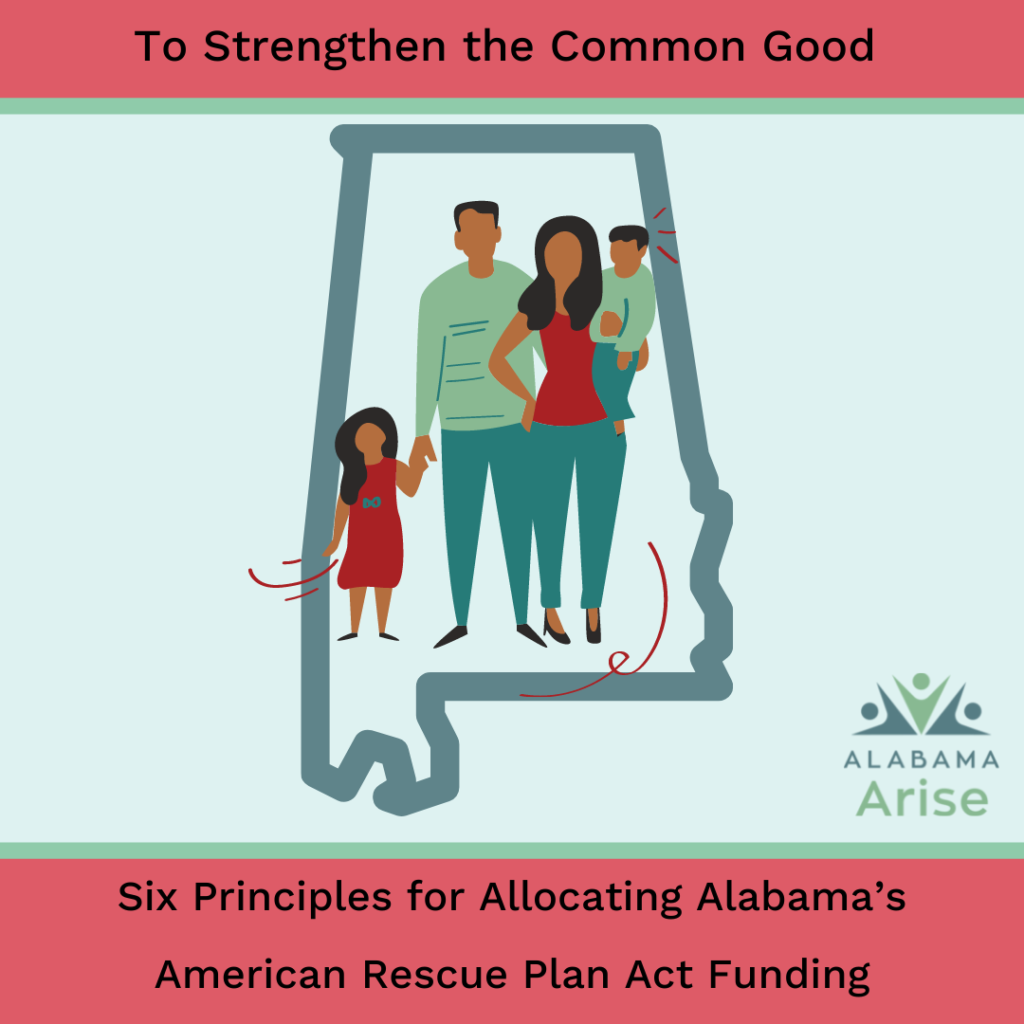The state sales tax on groceries is a cruel tax on survival, and Alabama Arise is committed to eliminating it. That is why I am grateful that Sen. Bobby Singleton nominated me to serve on the Joint Study Commission on Grocery Taxation on behalf of Arise. I am extremely excited about and honored for this opportunity, and I know that together, we will move Alabama closer to the goal of untaxing groceries once and for all.
How the commission came to be
After years of persistent advocacy by Arise members, policymakers took an important step toward tax justice this year by passing HB 479, a law that will cut the state grocery tax in half. The first decrease – from 4% to 3% – took effect in September 2023. The next decrease – from 3% to 2% – will occur in September 2024, or in the first year when Education Trust Fund (ETF) revenues grow by at least 3.5% annually.
Arise supports eliminating the state grocery tax sustainably and responsibly. That means ending the tax while also protecting vital funding for public schools. Lawmakers created the Grocery Tax Commission this year to figure out a pathway to do that.
This commission formed as the result of HJR 243 by Rep. Penni McClammy, D-Montgomery. The commission’s purpose is “to study a proposed elimination of the sales and use tax on food items,” according to the enabling legislation.
Arise’s testimony on untaxing groceries
I testified during the Grocery Tax Commission’s first meeting on Nov. 14 about the importance of untaxing groceries to help Alabama families make ends meet. And I suggested ways that Alabama could make it happen, including capping or eliminating the state deduction for federal income taxes.
Watch my testimony here, and download my presentation here.
- Arise’s 30-year history of advocating to reduce and ultimately eliminate the state’s grocery tax.
- The harmful impact that taxing groceries has on families with low incomes.
- Ways in which Alabama compares to other states regarding taxing groceries.
- Innovative solutions and ways to eliminate the remainder of the state’s grocery tax while protecting the ETF.
What will happen next
In serving on the commission, Arise is charged with helping to evaluate the effects of eliminating the state sales and use tax on groceries. The factors we will help assess include:
(1) Household expenses of Alabamians with low and moderate incomes.
(2) Education Trust Fund revenues.
(3) County and municipal revenue collection.
(4) Community food banks and other nonprofit organizations that provide food.
(5) Hunger and malnutrition experienced by children and older adults.
Here is the full list of commission members:
- Sen. Andrew Jones, R-Centre – co-chair of the Grocery Tax Commission
- Rep. Penni McClammy, D-Montgomery – co-chair of the Grocery Tax Commission
- Rep. Danny Garrett, R-Trussville – House Ways and Means Education Committee chair and sponsor of HB 479
- Sen. Arthur Orr, R-Decatur – Senate Finance and Taxation Education Committee chair
- Rep. Troy Stubbs, R-Wetumpka – appointee of Speaker Nathaniel Ledbetter
- Akiesha Anderson (Alabama Arise) – appointee of Sen. Bobby Singleton, D-Greensboro
- Michael Coleman (Heart of Alabama Food Bank) – nonprofit representative appointed by Senate President Pro Tem Greg Reed, R-Jasper
- Rosemary Elebash – representative of the National Federation of Independent Business
- Catherine Gayle Fuller – staffer for and appointee of Lt. Gov. Will Ainsworth
- Allison King (Alabama Education Association) – designee of House Minority Leader Anthony Daniels, D-Huntsville
- Wade Payne (Mitchell Grocery Co.) – representative of the Alabama Grocers Association
The Grocery Tax Commission will meet periodically between now and 2026, when it will release findings and recommendations. The next meeting will be in 2024. Arise will work closely with the commission in the coming years to lay the groundwork for eliminating the state grocery tax forever.




